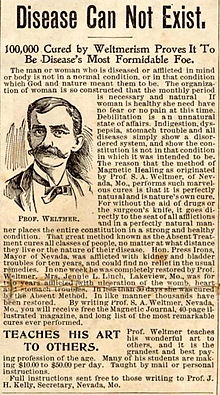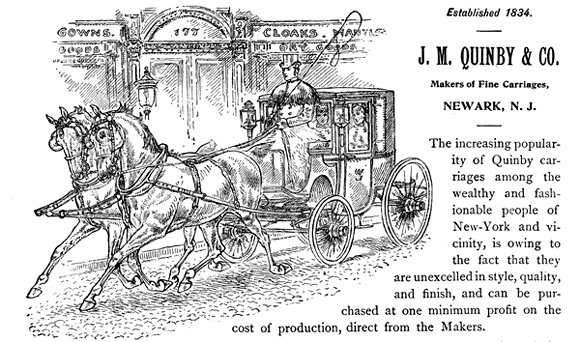I had the great honor to interview writer and editor Michael Sims about his newest book, The Phantom Coach and pick his brain about growing up in rural Tennessee, the (super)natural and what the ghost stories of our time will be like.
Did that disconnection from what some might call “civilization” imbue you with an affinity for the supernatural?
Actually, I think it did the opposite. In real life, I have no patience for supernatural thinking. I’m not the least bit religious. Growing up rural also meant, in my case, growing up Southern Missionary Baptist, with a fundamentalist and anti-education mother, which helped to sour me on religious thinking, I’m sure.
I’m very sympathetic to a sense of awe, and share it, and although I don’t myself believe in a creator deity, I can certainly understand the many people whose sense of awe shades into a religious sense.
But growing up with hundreds of acres of woods nearby did very much encourage my interest in nature, which led to my interest in natural science, which in time led to my career as a writer.
So perhaps a more Romantic respect for the sublime, the overwhelming sense of nature and our modest place in it?

Yes, I think you’re right. I like that phrase, “a more Romantic respect for the sublime.” I do believe that was a side effect of my private personal immersion in the natural world, and in a very nineteenth-century way it led to my move from the nature around me to field guides, to reading personal-essay-style natural history, to reading the original discoveries, to reading about the people who made the discoveries: a personal ramble from a luna moth in the yard in rural eastern Tennessee to Charles Darwin’s voyage on the Beagle.
In the introduction, you are very open about our own ghostly visitation experiences. How did your background affect choosing the stories for this collection?
Well, I meant in my introduction to convey sympathy for the IDEA of ghosts, for the notion of being haunted by grief and loss, sadness and regret, not for ghosts as actual apparitions, which is why I describe my dreams and mistaken glimpses in which lost loved ones “return.”
But I realized later that there were personal emotional issues influencing my selection of these stories at this time in my life. As I mention in the introduction, I have lost a brother, and my mother, and a grandfather, and also there has been a niece killed by a tornado, my father found dead across a barbed wire fence from a heart attack, and many other such losses. My father died when I was a small child and I’ve always been attuned to death and expecting loss.
Also our son, who is now eighteen months old, was born while I began reading these stories, and at the end of the selection process I realized that time and again I had chosen stories about the ghosts of children—apparently the ultimate loss I could imagine, and the one that I think would haunt me longest and hit me hardest.
So, maybe although you don’t believe in ghosts, the literary part of you almost wishes they were possible? Is that the true strength of a good ghost story? The hearer/reader finding it just slightly possible?
Yes. I think that when we’re reading these stories, in a way we’re either wishing that such a thing could be true (as in the first half of “The Monkey’s Paw”) or thrilled to remind ourselves that we’re glad such things are not true (as in the last half of that story).
 In the 19th century saw both immense advancement in medicine and industrialization as well as significant mortality rates caused by disease, starvation and even the new technologies of the era. Is it this setting, this mindset that lays the foundation for these stories?
In the 19th century saw both immense advancement in medicine and industrialization as well as significant mortality rates caused by disease, starvation and even the new technologies of the era. Is it this setting, this mindset that lays the foundation for these stories?
I think that’s a good point, the dichotomy between the technological advances and the ongoing loss of life. Medicine has always run sadly behind many other sciences, and the nineteenth century was a time of great mortality but also a decrease in religious thinking, as well as many pseudo-scientific attempts to “prove” an afterlife, such as the darkened-room legerdemain of spiritualism.
Yes, there is something bizarre about the equal likelihood of being maimed by modern machinery at work or being hit by a horse and carriage on the way to work, or poisoned by unsafe drinking water. What do you think the ghost stories of our time will be preoccupied with?
 This is a lovely question but one I’m not sure I can answer. I think that, as we push death a little further away through increasingly effective life-support systems for the elderly, and as we dig further into how the brain and memory work, we will be finding ourselves writing stories about this particular new twilight area, this border habitat between consciousness and its final slow fading away into the unknown wilderness of death. We don’t like to say goodbye (to ourselves or to others) any more now than we did in the era of Gilgamesh.
This is a lovely question but one I’m not sure I can answer. I think that, as we push death a little further away through increasingly effective life-support systems for the elderly, and as we dig further into how the brain and memory work, we will be finding ourselves writing stories about this particular new twilight area, this border habitat between consciousness and its final slow fading away into the unknown wilderness of death. We don’t like to say goodbye (to ourselves or to others) any more now than we did in the era of Gilgamesh.
All of your books require a significant amount of research. What do you love about that process? What is the part of research you dread?
I love disappearing into another era as if time-traveling, immersing myself in the texture and details of everyday life then. I emerge as if from a long movie about outer space, peering anew at my own world, blinking, shaking my head at both the differences and the similarities.
What do I dread? Hmmm. I’m not sure I dread anything about the research or writing. I mean, like all writers, I have trouble with discipline and schedule, and I wrestle with many drafts of everything, but I do love to write and I keep returning to it, and when I don’t do it for a few days I feel that life doesn’t make much sense and has become much less satisfying.
Did you have to leave out any favorites [for this collection]?
I did, actually, some because they were too long and some because they were already well known and I voted to save the space for lesser known works that deserved some new attention. I left out M. R. James, alas, because he’s so well represented everywhere, and some Sheridan Le Fanu because what I liked best was too long. There were plenty of others. Should this collection prove popular, Bloomsbury knows I have many other nominees standing in the wings, eager to go onstage.
Michael Sims is the writer of The Adventures of Henry Thoreau: A Young Man’s Unlikely Path to Walden Pond, Adam’s Navel: A Natural and Cultural History of the Human Form, Darwin’s Orchestra: An Almanac of Nature in History and the Arts, and Apollo’s Fire: A Day on Earth in Nature and Imagination. He is also the editor of Dracula’s Guest: A Connoisseur’s Collection of Victorian Vampire Stories, The Dead Witness: A Connoisseur’s Collection of Victorian Detective Stories, The Penguin Book of Victorian Women in Crime, and The Penguin Book of Gaslight Crime. He is on Twitter at @MichaelSimsBook
